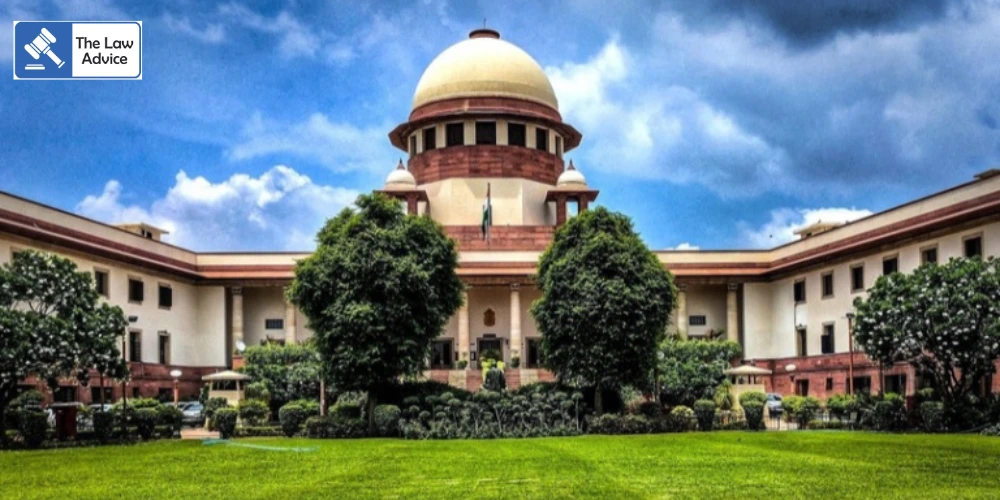New Delhi | 16 July 2025
The Supreme Court of India has granted bail to Ileshkumar Valabhai Kher, the former Chief Fire Officer of Rajkot, in connection with the catastrophic TRP Game Zone fire incident that claimed 27 lives in Gujarat last year. The apex court’s order, delivered on Monday, comes after Kher spent over 13 months in judicial custody without the trial commencing.
Court’s Reasoning: Limited Role, Prolonged Custody
A bench comprising Justice Manoj Misra and Justice Ujjal Bhuyan noted that while the fire was an appalling tragedy, Kher’s alleged liability appeared peripheral. The Court underlined that mere administrative lapses—without direct proof of intentional negligence should not warrant indefinite incarceration, especially in the absence of trial progress.
“There is nothing to suggest active facilitation of illegal constructions or direct involvement in the tragedy. His custodial detention cannot be justified when over 300 witnesses are still to be examined,” the bench observed.
Timeline of Legal Proceedings
• Kher was arrested shortly after the May 2024 fire that gutted a bustling amusement complex in Rajkot’s Nana Mava locality.
• In January 2025, the Gujarat High Court denied him bail, while granting relief to three other civic officials from the town planning department.
• The FIR invoked stringent sections of the IPC including culpable homicide not amounting to murder (Section 304), negligent conduct (Sections 337 & 338), and abetment (Section 114).
Allegations and Counterpoints
According to the prosecution, Kher had allegedly ignored safety violations and failed to act even after a minor fire incident was reported at the same venue in September 2023. Investigators claim he did not initiate inspection or cancellation of the venue’s No Objection Certificate (NOC), despite evident risks.
However, Kher’s defense argued that:
• His role was non-executive post-issuance of NOC.
• He neither sanctioned structural permissions nor had control over municipal enforcement.
• The alleged lapses were institutional, not personal.
The Supreme Court appeared to find merit in this position, noting that “the responsibility seems more dispersed across departments than concentrated in the hands of a single officer.”
State’s Opposition
Appearing for the State of Gujarat, Additional Solicitor General S.V. Raju contended that Kher had “wilfully overlooked” earlier warning signs and failed to conduct periodic fire audits. He also raised concerns that granting bail could send a wrong signal in a case of such grave public safety failure.
The court, however, clarified that bail orders do not establish precedent and stressed the principle of “bail, not jail,” particularly in cases where the trial process is likely to be prolonged.
What This Means for the Larger Case
Kher is among several accused in the case, including:
• The owners of the TRP Game Zone, who are facing trial for criminal negligence.
• Municipal officials from the planning and engineering wings.
• Private contractors, allegedly responsible for unsafe modifications.
With Kher’s release, the spotlight now shifts back to the trial court, where framing of charges and evidence presentation has been repeatedly delayed due to the high number of witnesses—over 360, according to the charge sheet.
Background: The Rajkot Fire That Shocked India
On 25 May 2024, a massive fire engulfed the TRP Game Zone amusement facility, packed with families and children during summer vacation. The fire, suspected to be triggered by welding work near flammable materials, spread rapidly through temporary structures.
Despite being a high-traffic venue, the game zone reportedly lacked:
• Adequate fire exits
• Functional sprinkler systems
• Valid safety clearances
The incident triggered a statewide crackdown on commercial entertainment venues operating without fire approvals.
Conclusion
The Supreme Court’s bail to Ilesh Kher may be seen as a cautious acknowledgment of differentiated responsibility—where institutional failure doesn’t necessarily translate to individual criminal culpability. While the victims’ families continue to seek justice, the ruling underscores the importance of due process and the dangers of pre-trial punishment.
• Case Name: Ileshkumar Valabhai Kher v. State of Gujarat
